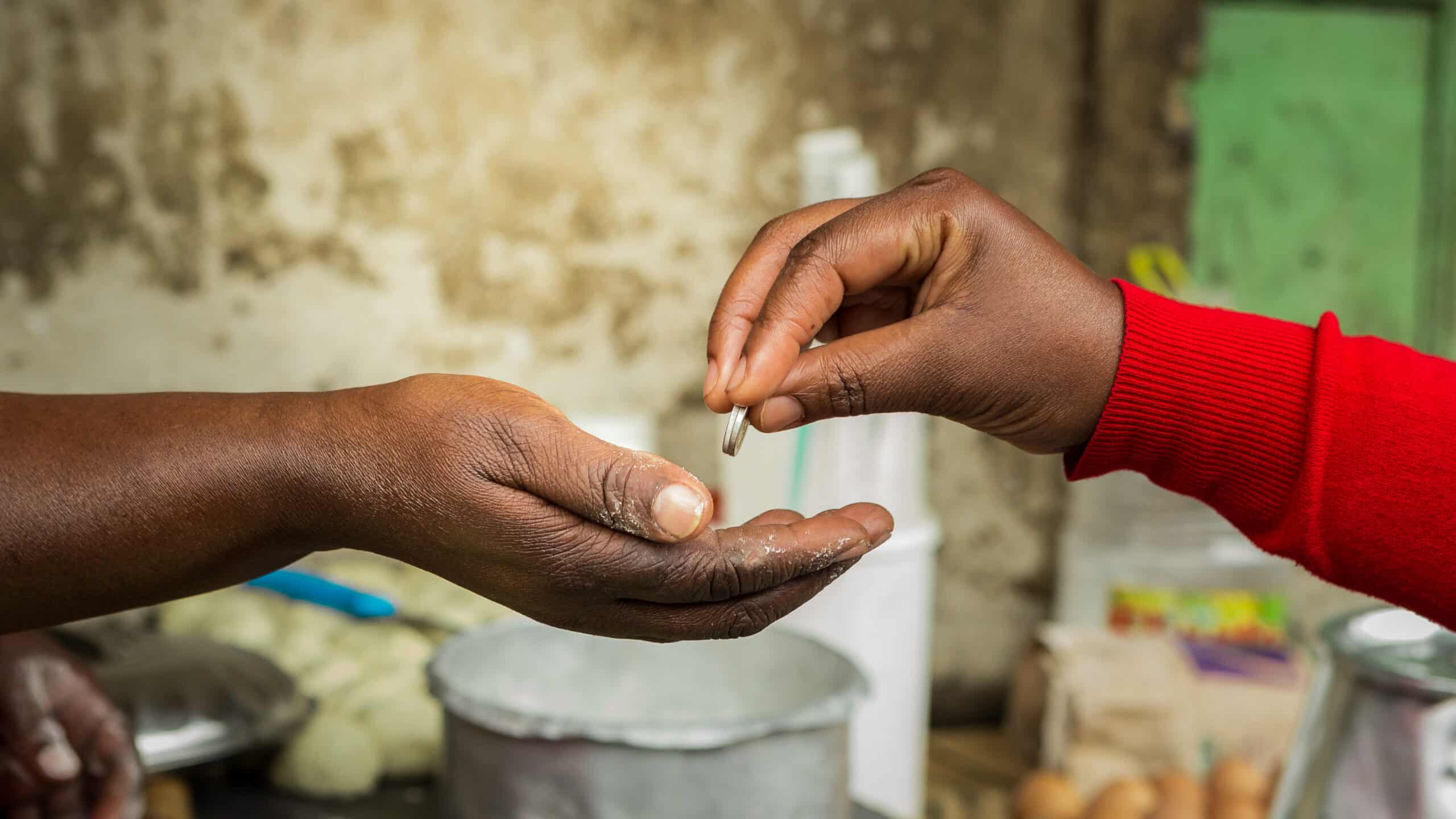FSD Africa launched a new Credit Market Development Programme (CMDP) in July 2016. The Programme, which will run for three years, aims to support the development of credit markets across sub-Saharan Africa that are efficient, inclusive and maintain high standards of market conduct in order to expand quality access to retail and SME consumers. The development of effective credit markets will, in turn, contribute to financial sector development, economic growth and job creation. The rate of credit market growth depends on a number of factors. At a country level, credit markets are often undermined by weak regulatory frameworks, low levels of enforcement and insufficient market infrastructure. Such weaknesses breed predatory lending practices and increasing levels of debt stress which, if left unattended, result in increased risk to consumers. In creating an effective legal and institutional framework that supports robust market growth, it is necessary to strike a realistic balance between increased and more inclusive credit supply on the one hand and effective oversight over market conduct and consumer protection on the other.
Country: Tanzania
Less than a month ago, on 15 June 2016, the crowdfunding industry in East Africa came together for the first time in Nairobi. This East African Crowdfunding Indaba & Marketplace was co-hosted by FSD Africa and the Kenya Capital Markets Authority, and attended by 65 representative from across the crowdfunding industry in Kenya, Rwanda, Tanzania and Uganda.
But, what did we learn? We boil it down to seven key points:
- East African crowdfunding markets are on the move. Crowdfunding markets in East Africa remain nascent, but are growing. According to forthcoming research by Allied Crowds and FSD Africa, crowdfunding platforms (donation, rewards, debt and equity) raised $37.2 million in 2015 in Kenya, Rwanda, Tanzania and Uganda. By the end of Q1 2016, this figure reached $17.8 million – a 170% year-on-year increase. Today, there are no platforms located in Tanzania, 1 in Rwanda, 1 in Uganda, 3 in Kenya, 10 in South Africa, with a further 55 located beyond these countries, but doing business within them. Ths platform landscaping report is scheduled for publication in July 2016.
- East Africa’s platforms report promising progress. Since its launch in September 2012, M-Changa has raised $900,000 through 46,000 donations to 6,129 fundraisers. Popular uses of M-Changa donations include: medical expenses (24%), business activities (24%), education expenses (12%), and funeral expenses (7%). The platform also reports 100% year-on-year growth rates. Since the launch of its pilot phase in December 2015, Pesa Zetu has dispersed c.1,200 loans via mobile phones to low income Kenyans – of loan sizes between $20 and $100 – to test its credit models, processes and technology platform. So far, Pesa Zetu has dispersed c.$59,275 in total. Scale-up in Kenya is planned for Q4 2016. Since its inception in March 2015, LelapaFund has screened over 350 SMEs in East Africa and beyond, and engaged over 30 in due diligence and investment readiness processes in Kenya. Pending regulatory approval, it hopes to open access to its first deals on the platform in 2016. During the event, each platform reported regional ambitions.
- Global crowdfunding markets are growing fast but also evolving. According to primary and secondary research by CGAP, the finance raised by crowdfunding platforms worldwide increased from $2.7 billion in 2012 to an estimated $34 billion in 2015. This figure is expected to reach $96 billion by 2025 in developing countries alone. Today, there are approximately 1,250 active platforms globally. They typically fall into four typologies (donation, rewards, debt and equity), but hybrids are fast emerging. In the UK, up to 40% of the capital raised by P2P platforms is institutional in its origin.
- East Africa’s MSMEs express a demand for alternative finance, but they’re not always investment-ready or able to locate financiers. According to LelapaFund research, c.45% of Kenyan start-ups sampled require between $10,000 and $50,000 growth capital, while c.40% require between $50,000 and $250,000 for expansion/export (22%), marketing (23%) and product development (29%). For Kenyan SMEs, c.50% of firms sampled require between $100,000 to $500,000 for expansion/export (40%), marketing (21%) and product development (29%). Both start-ups and SMEs received more capital from friends and family than banks. Vava Coffee reported difficulties locating and accessing sources of non-bank finance, especially as a female entrepreneur. The firm also highlighted the importance of data and evidence when raising finance because it demonstrates a track record. LelapaFund has committed significant resources to identify investment-ready SMEs for its platform. Of 350 Kenyan SMEs screened, less than 10% proceeded to due diligence phase. Financial literacy training for SMEs, low cost due diligence models, improved signposting of SMEs to sources of investment and the use of Company Registry data were suggested as means to address a lack of investment-ready SMEs in the region.
- There are both commercial and development opportunities for crowdfunding platforms in East Africa. Through their use of technology, crowdfunding platforms have the potential to mobilise and allocate capital more cheaply and quickly than the banking industry and development agencies. This could lead to the disintermediation of both through increased efficiency and competition, as well as increased access to finance for low income individuals and growing companies. Where mobile phone technology is currently used to provide micro-savings and micro-credit in East Africa, interest rate spreads remain significant – c.3% p.a. for saving, and c.90% p.a. to lend. This presents a market opportunity, particularly for P2P debt finance platforms.
- Crowdfunding risks and the regulatory environment. Globally, many crowdfunding markets are not yet regulated. The unique nature of crowdfunding models means that they straddle traditional payments, banking and securities laws. In jurisdictions where financial industry regulators are not consolidated into a single unified authority, platforms may also straddle regulating departments. In some countries, such as the New Zealand, the United Kingdom (UK), and the United States, crowdfunding is subject to special tailored regimes. In the UK, for example, the Financial Conduct Authority has developed a Regulatory Sandbox, which provides a safe space for innovative firms to test products and services with real consumers in a real environment, without incurring all of the normal regulatory consequences of engaging in this activity. In East Africa, there is no specific regime for crowdfunding regulation. Instead, sections of existing banking and securities legislation are used, but are open to interpretation. However, there is evidence of innovation. In Kenya, for example, Section 12A of the Capital Markets Act provides a safe space for innovations to grow before being subject to the full regulatory regime. During the event, the Kenya Capital Markets Authority, Rwanda Capital Markets Authority, Uganda Capital Markets Authority, and CGAP’s consumer protection specialist expressed cautious optimism about the future of crowdfunding markets in East Africa, noting particularly risks around: inexperienced borrowers and investors, digital fraud, data protection and non-performing loans/investments.
- There’s appetite to do business and to learn more from across East Africa. A total of 65 participants attended the Indaba & Marketplace from all corners of the East African market: a) supply-side (crowdfunding platforms, impact investors and micro-finance institutions such as Pesa Zetu, M-Changa, LelapaFund, Novastar Ventures, Letshego Holdings), b) demand-side (SMEs and consumer protection specialists such as Vava Coffee, EcoZoom, Burn), c) business service providers (data analytics firms, law firms, market intelligence firms and technology providers such as Anjarwalla & Khanna, IBM, Zege Technologies, Allied Crowds, Digital Data Divide, Open Capital Advisors, Genesis Analytics, Intellecap), d) rule-makers (regulators and policy makers such as the Kenya Capital Markets Authority, Rwanda Capital Markets Authority, Uganda Capital Markets Authority, UK Financial Conduct Authority), and e) donor agencies (market facilitators, think tanks and aid agencies such as Access to Finance Rwanda, CGAP, FSD Kenya, FSD Tanzania, FSD Uganda, UN Women).
So, what’s next?
First of all, for more facts and figures, please find all the presentations delivered during the crowdfunding indaba and marketplace here.
Second, we’re keen to move beyond discussion towards new partnerships and deal-making. With this in mind, please find a full list of participants here. If you’d like specific contact details then email Fundi Ngundi (fundi@fsdafrica.org), who will ask permission from the counterpart before connecting you.
Third, through partnership, FSD Africa will continue to support the development of crowdfunding markets in East Africa. The Allied Crowds platform landscaping research is scheduled for publication in July 2016. A regulator support exercise has been launched and will conclude in September 2016. It will be led by Anjarwalla & Khanna and the Cambridge Centre for Alternative Finance. Where beneficial to the poor and the wider crowdfunding market, FSD Africa will also provide light touch support to platforms themselves. If there’s demand, there could be scope for a follow-up Indaba and Marketplace in early 2017. If you’d like to collaborate then please be in touch.
Lastly, thank you to all the speakers, panelists, facilitators and participants for your lively contributions last week. Albeit steadily, crowdfunding markets are on the move in East Africa!
FSD Africa is pleased to announce that it has signed a USD 1.14 million grant agreement with Strathmore Business School – SBS to develop and deliver training to over 1,000 senior and mid-level executives in the financial sector in Tanzania, Rwanda and Uganda. Funded by the UK’s Department for International Development, FSD Africa supports financial sector development to help reduce poverty in sub-Saharan Africa.
This grant builds on FSDA’s strategy of supporting the emergence of strong centres of excellence that provide best practice training to financial sector professionals.
Strathmore Business School has for the past 10 years demonstrated its ability to deliver transformative executive development programmes in Kenya which has positively impacted the business community. We are delighted to partner with SBS to spread this success into the region.
Julias Alego, FSD Africa’s Director of Professional Education
Since 2013 SBS has trained over 200 senior and middle level managers in Uganda under the Uganda Leadership Development Academy – ULDA. This grant will support the expansion of the programme into Tanzania and Rwanda until the end of 2018. It will essentially be used to develop faculty, course material, case studies and limited scholarships to pioneering financial institutions for the programmes.
Over the next three years, it is expected that the target financial institutions to which these course participants belong will develop innovative products and deliver effective service to reach out to up to 5 million of existing and new customers in underserved market segments.
This partnership with FSDA will further enable Strathmore Business School to expand its leadership development programmes in the region and thus reach out to more executives and change livelihoods. We are excited with this partnership and look forward to working closely with FSDA to change lives.
Dr. George Njenga, Strathmore Business School Dean
With support from FSD Tanzania, FSD Africa worked with the London Stock Exchange (LSEG) Academy in 2014 to build capacity within Tanzania’s capital markets through targeted skills development.
Starting in January 2014, three phases of training were delivered to 103 professionals from the Dar Es Salaam Stock Exchange (DSE), Capital Markets & Securities Association (CMSA), Office of the Prime Minister, Ministry of Finance and a range of local brokers. To help achieve a lasting impact, LSEG Academy trainers also trained 14 Tanzanian trainers from local institutions such as the University of Dar Es Salaam and the University of Dodoma.
The training rated well, scoring an average of 4.8/5 on overall satisfaction. Evidence indicates that knowledge and expertise has increased. In Phase 2 and 3, practitioner test scores increased from 58% and 69% on entry to 84% and 77% on exit respectively.
A more detailed evaluation shows promising signs of s on the wider capital market system. In September 2014, the CMSA signed an MoU with London-based Chartered Institute for Securities & Investment (CISI), which will accelerate the development of a new capital market qualification for East Africa. There are also signs of replication. Again in September 2014, the LSEG Academy was separately contracted by a Tanzanian broker to deliver a training course to 15 participants on the post trade environment.
Between January and December 2014, the DSE reported an increase in total market capitalisation of 30%, 2 listings and an increase in market liquidity. According to the DSE CEO, Moremi Marwa: ‘our partnership with the UK is now moving away from aid towards trade and investment
This project:
- Identifies the skills gap, training needs and existing cross-industry skill development initiatives among financial service providers in East Africa;
- Identifies existing cross-industry skills development initiatives in International markets;
- Develops potential solutions for cross-industry skills development for East Africa financial service sector.




